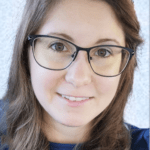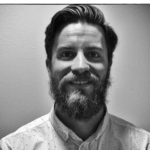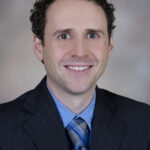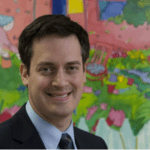15 June, 2022 8:00 am – 12:30 pm
Online via Zoom June 15 & 22
Keynote Speakers
Dr. Chertkow is a practicing cognitive neurologist at the Baycrest Health Sciences Centre, where he Is also Senior Scientist and Chair in Cognitive Neurology and Innovation at Baycrest’s Rotman Research Institute. He is a Professor in the Dept. of Medicine (Neurology) at University of Toronto. At Baycrest he is also director of the new Clinical Trials Unit and the Kimel Central for Brain Health. Dr. Chertkow is an active researcher in the area of dementia. His major areas of research interest include early diagnosis of Alzheimer’s Disease and prediction of deterioration in individuals with Mild Cognitive Impairment, and therapy of cognitive disorders in Alzheimer Disease and Frontotemporal dementia using neuromodulation approaches such as transcranial direct current stimulation. Dr. Chertkow’s lab is now focused on developing transcranial direct current stimulation (tDCS) as ancillary therapy in elderly individuals with neurodegenerative disease. Thirty-two of his publications have over 100 citations, and three of the publications have been cited over 1000 times. Stanford University listed him in the top 2% cited researchers in 2020.
He is senior author of the Montreal Cognitive Assessment (MoCA), which has become an international standard for diagnosis of MCI, has been cited over 10,000 times and is the most cited paper in the field of neurology in the world in the 21st century. In 2014 Dr. Chertkow became the Scientific Director for the Canadian Consortium on Neurodegeneration in Aging (CCNA), a national organization established by the Canadian government via CIHR and partners. CCNA, now approved for a five year Phase 2 beginning in April 2019, is the largest grant every awarded in dementia research in Canada, and brings together 350 leading Canadian dementia researchers to establish national teams and platforms to produce breakthroughs in the diagnosis and treatment of the dementing illnesses.
Dean is the Director of Client Experience, Education and Innovation at The Dementia Society of Ottawa and Renfrew County. He is an occupational therapist, quality improvement nerd, and general ruckus maker.

Dr. Edward SpilgMBChB MSc FRCP(Glasg)
Dr. Ed Spilg graduated in Medicine from the University of Glasgow, Scotland, completed Higher Specialist Training in Geriatric Medicine and was appointed NHS Consultant in Geriatric Medicine in Glasgow in 1999. He subsequently graduated with a Masters degree in Clinical Leadership from the University of Glasgow Business School in 2010.
He emigrated to Ottawa in 2015 to take up the position of Assistant Professor and Staff Physician in the Dept. of Medicine at the University of Ottawa and the Ottawa Hospital working within the Division of Geriatric Medicine.
He held the position of Dept. of Medicine Vice Chair for Wellness and Professional Development from 2015-2018,
He was appointed Senior Clinician Investigator in the Clinical Epidemiology Program, at the Ottawa Hospital Research Institute in 2016 and Research Chair in Physician Wellness in the Dept. of Medicine in 2018.
His research interests include studying physician wellness and its relationship to the delivery of compassionate care for which he was awarded an AMS Phoenix Fellowship in 2016. In 2019 he published a systematic review of interventions to build resilience in physicians who have completed training and also successfully led an RCT assessing the impact of a Stress Management and Resilience Training program on academic physicians during the implementation of a new Health Information System. Over the past 8 months, he has been working in collaboration with researchers and clinicians across Canada and the United States to better understand the impact of the COVID-19 pandemic on physician and other healthcare worker wellness, and in particular around moral suffering.
Dr. Thomas completed his medical school and neurology residency training at the University of Ottawa, and a fellowship in geriatric neurology at the Oregon Health and Science University and Portland Veterans Affairs Medical Center. Dr. Thomas is currently a neurologist at the Bruyère Memory Program. His research focus is on using remote and sensor-based assessment methods to detect changes in cognition and functional activities in individuals with cognitive impairment. He is also interested in improving the assessment of time and effort spent on caregiving tasks using the sensor-based assessment methods. The goal is to use these novel methods to assess the effectiveness of interventions aimed at supporting day-to-day functioning in people with cognitive impairment and reducing caregiver burden.
Speakers

Melissa BlindPhD
Dr. Melissa Blind is Cree from George Gordon’s First Nation, Saskatchewan. She has a PhD in American Indian Studies from the University of Arizona. Dr. Blind is a Senior Research Associate for the Memory Keepers Medical Discovery Team (MK MDT) at the University of Minnesota School of Medicine in Duluth, MN. She is also the research coordinator for the Indigenous Cultural Understandings of Alzheimer’s Disease and Related Dementias – Research and Engagement (ICARE) project. Dr. Blind’s research interests include Indigenous understandings of health and wellbeing, including health disparities, Indigenous understandings of neurological conditions, including dementia and Alzheimer’s Disease, issues surrounding identity, and oral narratives.
Dr. Andrew Frank is a cognitive and behavioural neurologist at the Bruyère Memory Program at the Élisabeth Bruyère Hospital in Ottawa, Ontario.
After finishing his Bachelor’s degree in Honours Biochemistry at the University of Calgary, Dr. Frank completed his M.D. at the University of British Columbia in Vancouver. He completed his residency in Neurology at the University of Ottawa. Following this, Dr. Frank undertook a subspecialty fellowship in Cognitive and Behavioural Neurology at the Mayo Clinic in Rochester, Minnesota.
Dr. Frank’s clinical practice is focused on the diagnosis and treatment of neurodegenerative diseases, such as dementia due to Alzheimer’s disease. His clinical interest lies in the early detection of cognitive disorders, such as Mild Cognitive Impairment (MCI). Dr. Frank’s research interests center on investigating new pharmacologic treatments and technologies for Alzheimer’s disease.

Joanna LetemplierRN, BScN
Joanna is a Registered Nurse with a Bachelor’s in science of nursing from the University of Ottawa and Algonquin College collaborative program. She currently works as the Centralized Intake Coordinator with Geriatric Psychiatry Community Services of Ottawa (GPCSO). She previously worked in a variety of settings including geriatric rehabilitation in complex continuing care, long-term care, as well as community assisted living services for high-risk seniors. She is also Gerontological Nurse Certified.

Dr. J.B. OrangePhD
Dr. J.B. Orange is a Professor in and Acting Director of the School of Communication Sciences and Disorders at Western University at London Canada. He is an Associate Scientist with Lawson Health Research Institute at London Canada. He also is the Scientific Director of the Canadian Centre for Activity and Aging at Western University.
He currently conducts collaborative research on several provincially and nationally funded studies. Examples include the Ontario Neurodegenerative Research Initiative (ONDRI) funded by the Ontario Brain Institute, the Canadian Consortium on Neurodegeneration in Aging (CCNA) funded by the Canadian Institutes of Health Research (CIHR), and the Social Sciences and Humanities Research Council (SSHRC) of Canada.
Dr. Orange’s peer-reviewed publications and funded research address language and cognitive-communication disorders of adults and older adults. His research has a special emphasis on discourse, conversation and communication of individuals living with various types of dementia.
Several of Dr. Orange’s current funded research studies include investigations comparing and contrasting the linguistic, cognitive and neuroimaging profiles of persons living with Alzheimer’s dementia, several subtypes of frontotemporal lobe dementia, amyotrophic lateral sclerosis, vascular cognitive impairment, and Parkinson’s disease, especially for those with hearing, vision, and both hearing and vision impairments (ONDRI). Other studies include 1) examining the nature and type of conversational breakdowns and repairs among different dementia types (CCNA), 2) screening protocols for modifiable risk factors for dementia during functional fitness appraisals (SSHRC), 3) determining the effectiveness of person-centred communication enhancement education and training program for health care providers (Employment Skills Canada), and 4) examining the effectiveness of iPad-based conversation memory notebooks designed to enhance person-centred communication among family caregivers of persons with Alzheimer’s dementia.
In addition to his dementia-based research program, Dr. Orange participates as an active committee member for local, regional, provincial and national scientific and professional associations with mandates related directly to dementia. He was an invited contributor and active participant in the development of the Canadian national strategy for dementia.

Emily PirainoMSc
Emily Piraino has worked as a Psychogeriatric Resource Consultant for Algoma (Sault Ste Marie Area) through North Bay Regional Health Centre for the past 10 years. Her role involves education, consultation, and capacity-building for health care teams supporting those living with age-related neurocognitive disorders, mental health, and substance use, with behavioural expressions. She also serves as the Indigenous Engagement Lead for her North East team. Outside of work, her hobbies include painting wildlife, playing hockey, and enjoying time spent outdoors around Lake Superior.

Dr. Jennifer WalkerPhD.
Dr. Jennifer Walker is a Haudenosaunee member of Six Nations of the Grand River with a Ph.D. in Community Health Sciences (Epidemiology) from the University of Calgary. She is an Associate Professor at McMaster University in the Department of Health Research Methods, Evidence, & Impact and the Indigenous Health Learning Lodge. Dr. Walker’s work focuses largely on Indigenous community-engaged health research using large health services databases through her work as a Core Scientist and Indigenous Health Lead at ICES in Ontario and through the Health Data Research Network Canada. Dr. Walker has an active community-engaged research program in aging and dementia where she co-leads Team 18 – Issues in Dementia Care for Indigenous Populations, and leads the Indigenous Cognitive Health Program within the Canadian Consortium on Neurodegeneration in Aging.




